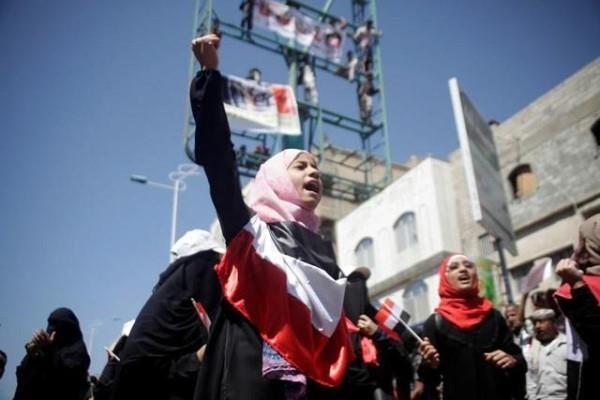
Yemen peace efforts miss critical factor
Including women at the peace table is not just a matter of fairness – it is a strategic imperative.Research suggests that when women participate in a peace process, the resulting agreement is64 per cent less likely to failand35 per cent more likelyto last at least 15 years. Indeed, this data inspired the US government to enact a 2017lawto support women's meaningful participation in peace negotiations.
FromGuatemalatoNorthern Irelandto thePhilippines, women have demonstrated that their involvement in a peace process is crucial. Yet, in Yemen, women have had little to no representation in multiple rounds of talks since 2011 — including inthe most recent talksoutside Stockholm last week.It is a gap the United States should addressas Congress debateswhether to withdraw support for the Saudi-led multinational coalition fighting in Yemen and how to increase the nation's chances for peace. To achieve the latter, lawmakers should advocate for women's participation in the negotiations and in the recovery efforts to follow.
Despite ample evidence demonstrating the importance of women's involvement in peace talks, a Council on Foreign Relationsreporttracking women's participation in peace processes from 1990 to the present found that women comprise only 2 per cent of mediators, 5 per cent of witnesses and signatories, and 8 per cent of negotiators around the world. The negotiators of the Yemeni peace process have an opportunity to improve upon these dismal numbers.Some may allege that diplomatic pressure to add women to the peace table would be perceived as unwanted foreign interference. In fact, however, the Yemeni people have supported reserving seats for women in similar contexts, committing in 2013 to a30 per cent quotafor women on political delegations. And before the Yemeni conflict began in 2015, women's rights were on the march: after decades of oppression, Yemeni women from all backgrounds were at the center ofthe 2011 peaceful proteststhat eventually removed president Ali Abdullah Saleh from power. One of the most visible leaders —Tawakkol Karman, known as the Mother of the Revolution — was awarded the Nobel Peace Prize for her commitment to a non-violent pursuit of human rights and opportunity.
Yet, once ethnic Houthi rebels from northern YemenseizedSana'a and the Saudi-led multinational coalition launched its counter-campaign, women's rights were once again under assault. Within the first five months of the war, documented cases of gender-based violence, including rape, increased by70 per cent. Child marriage rates rose as well, and today,two out of every three Yemeni girlsare married before the age of 18. Of the two million people displaced from their homes,75 per centare women and children, forced by war to provide for their families with little training and limited job prospects.Despite these difficult odds, Yemeni women have overcome their political marginalisation to contribute to peace efforts on the ground. Including Yemeni women in the negotiations to end the war in their country would reflect the contributions they are already making, from facilitating humanitarian access to assisting in the release of detainees to leading the reintegration of child soldiers. Here are three ways they have already made a difference:
First, they work across divides. Yemeni women from all backgrounds have formed new coalitions, including theYemeni Women Pact for Peace and Securityand the Women's Solidarity Network.Working across political lines, they have activated local truce committees to prevent fighting over water and land resources, risked their lives to rescue families trapped by the conflict and evacuated schools held by armed groups.Second, they promote local security. Hundreds of women-led initiatives to provide education and food to their communities also promote local security. They have facilitatedhumanitarian accessin areas aid convoys have had difficulty reaching, supportedreintegration programmesfor child soldiers (filling a gap left by the UN's own suspended effort), led efforts — in the face of ongoing abuse — to release over300 detaineesandtrackedbombings and medicine shortages.
Third, they are seeding the ground for post-conflict recovery. Women haveadvocatedthat the negotiation process address issues that can improve the durability of peace agreements, including the establishment of an international fund for reconstruction, investment in income generation opportunities and the revival of the judicial system. Women have alsopushedfor disarmament, demobilisation, and reintegration programmes to respond to the needs of female and child soldiers, and have called for the inclusion of more women in the security sector — all measures which have been shown tostrengthen post-conflict recoveryand stability.Including women at the peace table is not just the right thing to do — it's the smart thing to do.

Legal Disclaimer:
MENAFN provides the
information “as is” without warranty of any kind. We do not accept
any responsibility or liability for the accuracy, content, images,
videos, licenses, completeness, legality, or reliability of the information
contained in this article. If you have any complaints or copyright
issues related to this article, kindly contact the provider above.

















Comments
No comment